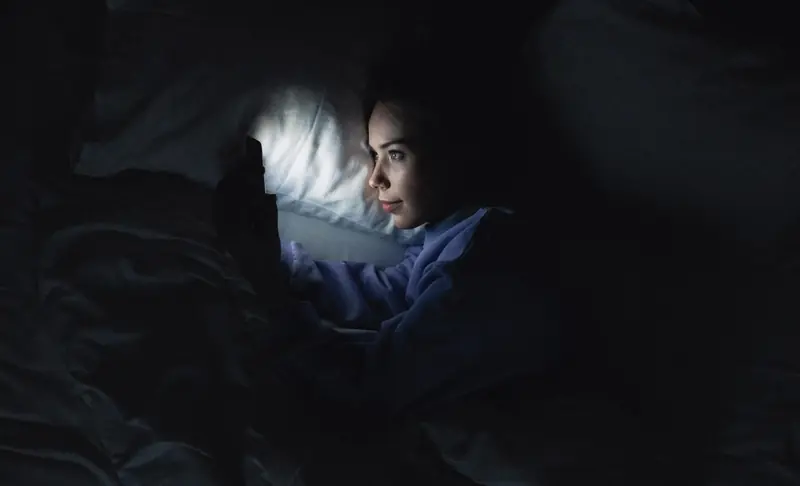
A team of researchers from Monash University in Australia has conducted the world’s largest study on the impact of artificial light at night on mental health.
According to the scientists’ findings, exposure to light at night disrupts our internal biological clock, negatively affecting mental well-being. Specifically, it increases the risk of developing depression, while the influence of natural daylight reduces this risk.
Our biological clock, or circadian rhythms, regulates our wake and sleep cycles in response to changes in environmental lighting. Although other factors, such as physical activity, social engagement, and temperature, can also disrupt circadian rhythms, light has the most powerful effect on them.
What the Researchers Discovered
For their extensive study, the researchers utilized data from the UK Biobank involving 86,772 adults. All participants were examined regarding the effects of light, sleep quality, physical activity, and mental health.
The analysis revealed that participants exposed to high levels of artificial light at night had a 30 percent increased risk of developing depression. Conversely, those who experienced significant amounts of natural light during the day saw their risk decrease by 20 percent, as reported by New Atlas.
Similar patterns were observed concerning self-destructive behavior, psychosis, bipolar disorder, generalized anxiety disorder, and post-traumatic stress disorder.
Notably, the authors considered demographic factors, physical activity, sleep patterns, work hours, living conditions, and participants’ cardiometabolic health in their analysis.
Simple Steps to Strong Mental Health
Shawn Kane, a co-author of the study, believes these results could have a potentially significant impact on society. Once people understand how profoundly light affects their mental health, they can take a few simple steps to improve their well-being. At the very least, they should turn off all lighting fixtures at night to ensure the darkness necessary for mental harmony.
In their report, the researchers noted that modern life, with its artificial light from lamps, phones, computers, and television screens, has thrown our internal biological clock out of sync. We increasingly forget that we perform best in bright daylight. According to Shawn Kane, this has challenged our biology, disorienting our bodies and leading to poorer health and increased depression.
The team emphasized that avoiding artificial light at night and seeking natural light during the day could be a simple and effective non-pharmaceutical approach to improving mental health. The study’s results were published in the journal Nature Mental Health.
